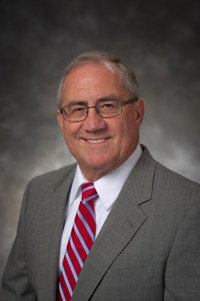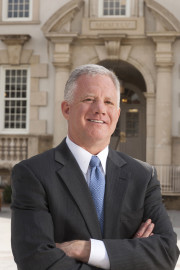The preliminary talks are over: Now Emory and WellStar officials will move forward on creating a merged health care system.
Trustees of Emory University and WellStar Health System have approved a resolution to start the “design phase” of a new entity, the two organizations announced Thursday evening.
The combination of Emory Healthcare and WellStar would be easily the state’s biggest health system. But a merger won’t come quickly, officials said. And the deal still has not been clinched, they emphasize.
The potential combination of the two large metro Atlanta systems was announced Feb. 9. Officials said then that the initial talks between the two systems would continue for 45 days, and Thursday’s announcement made clear that the merger idea had been given a green light.
Some of the details to be worked out during the next phase of talks include the name of the new health system, its corporate office location, governance and structure. That is expected to take at least a year.
A completed deal would combine Emory’s academic health system with WellStar’s expertise in running community hospitals. It would also create a system with geographic reach across Atlanta and into its northwest suburbs, where WellStar dominates.
The biggest challenge in the merger is the fitting together of a community hospital system and an academic medical center, Reynold Jennings, CEO of WellStar, said Friday. “The physicians have to be able to work together,’’ he added. Talks between leaders of each medical staff have already begun, Jennings told GHN on Friday.
Emory Healthcare CEO Michael Mandl said Friday that “keeping our eye on the vision’’ of an innovative, high-quality health system “will enable us to confront the many challenges’’ during the merger discussions.
The announcement about the merger came just hours after Emory announced the creation of an “accountable care organization’’ with insurance giant Aetna.
Are mergers always good?
While this health system merger would be Georgia’s biggest ever, hospital consolidation has emerged as major trend in the state and the nation.
The number of hospital mergers or acquisitions nationally has doubled since 2009, according to a Journal of the American Medical Association opinion article.
Mergers, and looser alliances of hospitals, have accelerated due to the economic environment in the health care industry, which has shifted, in part, because of the Affordable Care Act.
But some of these combinations have come under scrutiny from the Federal Trade Commission, including one in southwest Georgia. FTC litigation against an Albany hospital merger was settled earlier this week after a four-year battle. The feds contended the merger hurt competition in the health care industry in that part of the state.
The metro Atlanta market is much more competitive than the one in southwest Georgia, and Jennings and Mandl said they believe an Emory/WellStar pairing would not raise major antitrust concerns.
Still, Georgia Watch, a consumer advocacy group, recently voiced concerns about the potential impact of an Emory/WellStar combination.
The group said such provider consolidation “is leading to higher prices for consumers with little to no improvement in the quality of care individuals receive.”
Beth Stephens, the group’s health access program director, also said she is concerned that the public comment period about the merger lacks transparency.
Both Emory and WellStar officials said Friday that the merger process will be transparent to the public and to health care stakeholders.
During the design phase, Emory and WellStar said, they will continue to seek feedback, and they said that during this period, consumers can submit questions or feedback to communications@emoryhealthcare.org or communityfeedback@wellstar.org
Emory has also posted a public “frequently asked questions’’ section on its website: http://emoryhealthcare.org/emory-wellstar/index.html
And Emory’s Mandl, when asked about the pricing concerns, said each organization’s goal is to “bend the cost curve in health care,’’ and that the same objective would be pursued under a merger.
Brad Guest, a consultant with Subsidium Healthcare, told GHN on Friday that every merger has a challenge with merging cultures, but this one, involving a community hospital system and an academic one, “will be a little more challenging.’’
Another potential obstacle is their ability to reduce duplicative services and cut costs, Guest said. Both sides will have to learn a new governing “playbook,’’ he added.
But he also pointed out that a combined entity would have considerable market power. “Emory and WellStar are indispensable to any managed care [insurer],’’ he said.


